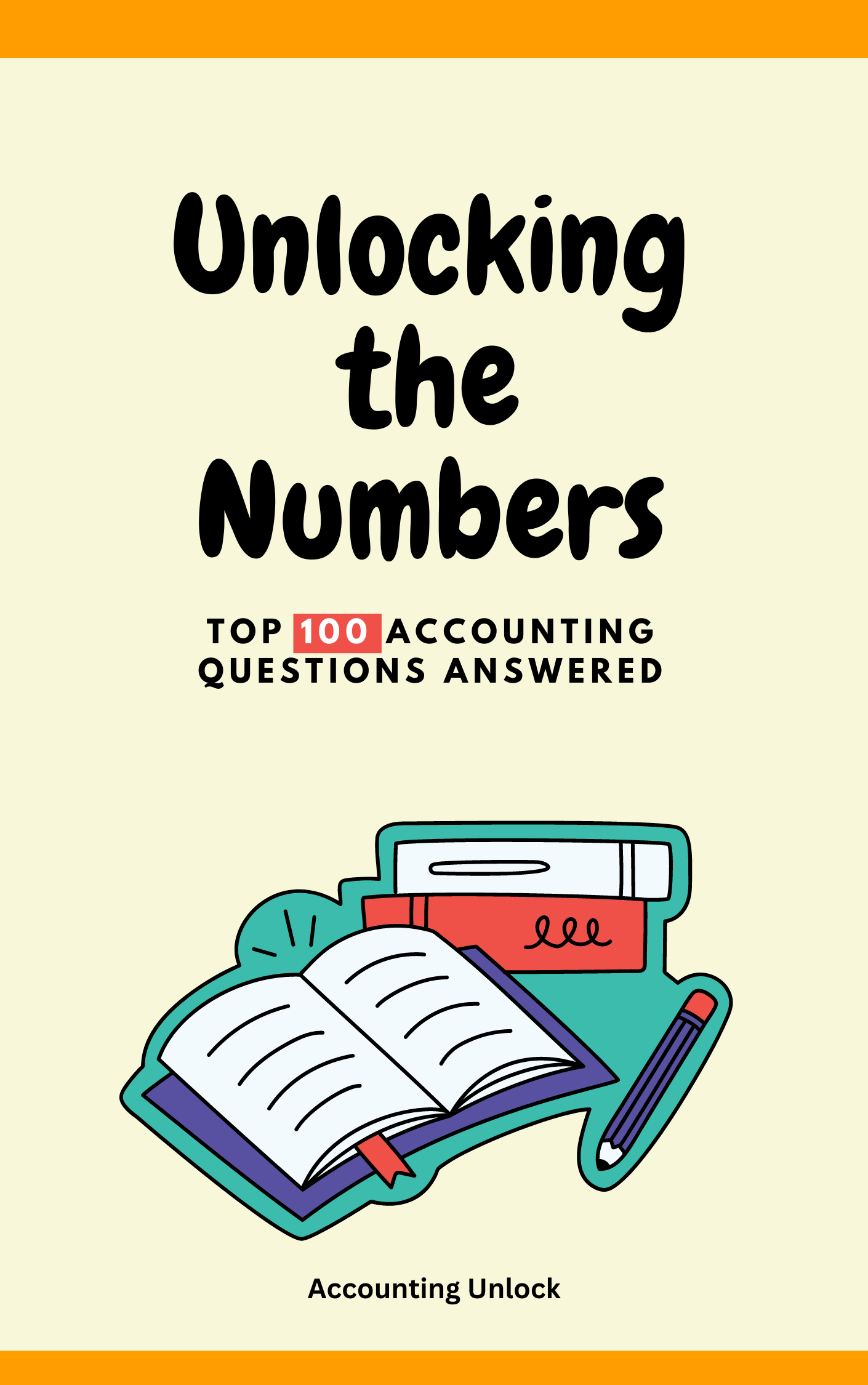Hey there, future financial wizards! Ever wondered why businesses keep track of money in a special way? Get ready for a journey into the world of accounting – the language that helps businesses decode their financial secrets. Today, we’ll explore why accounting is not just numbers but a powerful necessity for understanding the money game.
In this blog post, we will explore the necessity of accounting from different perspectives and contexts. We will also learn some basic accounting concepts and terms that will help you to understand how accounting works. By the end of this post, you will have a better appreciation of the importance and benefits of accounting in our daily lives.
Table of Contents
The Basics: What is Accounting?
Imagine accounting as the superhero that keeps a record of all the money moves a business makes. From buying cool gadgets to selling awesome products, accounting is the storyteller that captures every financial adventure. But why is it so important? Because, without accounting, understanding how well a business is doing financially would be like trying to play your favorite video game without keeping score.
Accounting is the process of recording, summarizing, analyzing, and communicating financial information. It helps us to keep track of our money, assets, liabilities, income, expenses, and profits. Accounting is essential for individuals, businesses, organizations, and governments, as it helps them to make informed decisions, plan for the future, and comply with laws and regulations.
Accounting for Individuals

Accounting is not only for businesses and professionals. It is also useful for individuals who want to manage their personal finances effectively. Accounting can help you to:
- Budget your income and expenses: Accounting can help you to plan how much money you earn and spend each month. You can use accounting tools such as spreadsheets, apps, or software to record your income and expenses, and categorize them into different groups, such as food, rent, entertainment, etc. This way, you can see where your money goes and how much you save or overspend. You can also set financial goals and track your progress towards them.
- Save and invest your money: Accounting can help you to save and invest your money wisely. You can use accounting to calculate how much money you need to save for a specific purpose, such as buying a car, going on a vacation, or retiring. You can also use accounting to compare different investment options, such as stocks, bonds, or mutual funds, and evaluate their risks and returns. Accounting can help you to diversify your portfolio and maximize your wealth.
- Prepare and file your taxes: Accounting can help you to prepare and file your taxes correctly and on time. You can use accounting to keep track of your income and deductions, such as mortgage interest, charitable donations, or medical expenses. You can also use accounting to calculate your tax liability and claim any refunds or credits that you are eligible for. Accounting can help you to avoid penalties and audits from the tax authorities.
Accounting for Businesses

Accounting is vital for businesses of all sizes and types. It helps them to operate efficiently, effectively, and ethically. Accounting can help businesses to:
- Measure and report their performance: Accounting can help businesses to measure and report their performance to various stakeholders, such as owners, managers, investors, creditors, customers, employees, and regulators. Accounting can provide information such as sales, costs, profits, assets, liabilities, equity, cash flows, and ratios. Accounting can also help businesses to prepare financial statements, such as income statement, balance sheet, and cash flow statement, that summarize their financial position and results.
- Make and evaluate decisions: Accounting can help businesses to make and evaluate decisions that affect their operations and strategies. Accounting can provide relevant, reliable, and timely information that can help businesses to analyze different alternatives, such as launching a new product, expanding to a new market, or acquiring another company. Accounting can also help businesses to assess the outcomes and impacts of their decisions, such as profitability, liquidity, solvency, and growth.
- Control and monitor their activities: Accounting can help businesses to control and monitor their activities and ensure that they are aligned with their objectives and standards. Accounting can help businesses to design and implement internal controls, such as policies, procedures, rules, and systems, that can prevent or detect errors, fraud, waste, or abuse. Accounting can also help businesses to conduct internal and external audits, reviews, and inspections, that can verify the accuracy and completeness of their accounting records and reports.
Accounting for Society

Accounting is not only beneficial for individuals and businesses. It is also beneficial for society as a whole. Accounting can help society to:
- Promote economic growth and development: Accounting can help society to promote economic growth and development by facilitating trade, commerce, and entrepreneurship. Accounting can help society to create and maintain a market economy, where goods and services are exchanged freely and efficiently. Accounting can also help society to attract and allocate resources, such as capital, labor, and technology, that can enhance productivity and innovation.
- Ensure social justice and responsibility: Accounting can help society to ensure social justice and responsibility by fostering transparency, accountability, and ethics. Accounting can help society to disclose and communicate information that can affect the public interest, such as environmental, social, and governance (ESG) issues. Accounting can also help society to monitor and regulate the behavior and actions of individuals and businesses, and enforce laws and rules that can protect the rights and interests of the society.
- Support public services and welfare: Accounting can help society to support public services and welfare by enabling taxation, budgeting, and spending. Accounting can help society to collect and distribute taxes from individuals and businesses, and use them to fund public goods and services, such as education, health, security, and infrastructure. Accounting can also help society to plan and manage its budget and spending, and ensure that they are aligned with its priorities and needs.
Basic Accounting Concepts and Terms
To understand how accounting works, you need to know some basic accounting concepts and terms. Here are some of the most common ones:
- Account: An account is a record of the changes in the value of a specific item, such as cash, inventory, or accounts receivable. Accounts are classified into five categories: assets, liabilities, equity, revenues, and expenses.
- Asset: An asset is anything that has value and is owned or controlled by an individual or a business. Examples of assets are cash, land, buildings, equipment, inventory, and patents.
- Liability: A liability is anything that is owed or obligated to another party. Examples of liabilities are loans, bonds, accounts payable, and taxes payable.
- Equity: Equity is the difference between the value of the assets and the value of the liabilities. It represents the ownership interest or claim of the owners or shareholders of a business. Equity can also be called capital, net worth, or net assets.
- Revenue: Revenue is the amount of money that is earned from selling goods or services to customers. Revenue can also be called sales, income, or turnover.
- Expense: Expense is the amount of money that is spent or incurred to generate revenue. Examples of expenses are cost of goods sold, salaries, rent, utilities, and interest.
- Debit and Credit: Debit and credit are the two sides of an accounting entry. A debit is an increase in an asset or an expense account, or a decrease in a liability or an equity account. A credit is the opposite of a debit. Debits and credits must always balance each other in an accounting equation.
- Journal and Ledger: A journal is a chronological record of all the transactions that occur in a business. A ledger is a collection of all the accounts that are used in a business. A journal entry is a summary of a transaction that shows the accounts, amounts, and effects of the transaction. A ledger entry is a posting of a journal entry to the corresponding accounts in the ledger.
- Trial Balance: A trial balance is a list of all the accounts and their balances at a given point in time. It is used to check the accuracy and completeness of the accounting records and to prepare the financial statements.
- Financial Statements: Financial statements are the reports that summarize the financial position and performance of a business. The main financial statements are the income statement, the balance sheet, and the cash flow statement. The income statement shows the revenues and expenses, and the resulting profit or loss, for a period of time. The balance sheet shows the assets, liabilities, and equity, and their balances, at a point in time. The cash flow statement shows the sources and uses of cash, and the resulting change in cash, for a period of time.
Conclusion
So, there you have it – the necessity of accounting unravelled! It’s not just about numbers; it’s about understanding the language of money.
Accounting is a powerful and useful tool that can help us to understand and manage our financial affairs. Accounting is necessary for individuals, businesses, society, and anyone who deals with money. Accounting can help us to budget, save, invest, prepare taxes, measure performance, make decisions, control activities, promote growth, ensure justice, support welfare, and communicate information. Accounting can also help us learn some basic concepts and terms that can enhance our financial literacy and skills.
If you enjoyed this blog post, please share it with your friends and family who might be interested in learning more about accounting. You can also visit our website, accountingunlock.com, to find more resources and tips on accounting.
Thank you for reading and have a great day!
FAQ -The Necessity of Accounting
Q: What is accounting?
A: Accounting is the process of recording, summarizing, analyzing, and communicating financial information.
Q: Why do we need accounting?
A: We need accounting to keep track of our money, assets, liabilities, income, expenses, and profits. Accounting helps us to make informed decisions, plan for the future, and comply with laws and regulations.
Q: Who uses accounting?
A: Accounting is used by individuals, businesses, organizations, and governments. Anyone who deals with money can benefit from accounting.
Q: What are some basic accounting concepts and terms?
A: Some basic accounting concepts and terms are account, asset, liability, equity, revenue, expense, debit, credit, journal, ledger, trial balance, and financial statements.
Q: How can I learn more about accounting?
A: You can learn more about accounting by visiting our website, accountingunlock.com, where you can find more resources and tips on accounting. You can also subscribe to our newsletter, follow us on social media, or contact us for any questions or feedback.
You may also read:





